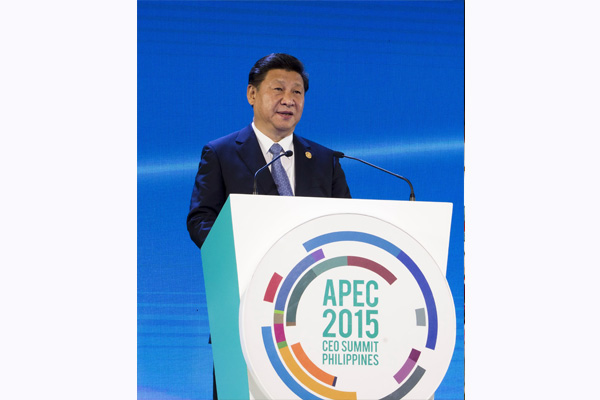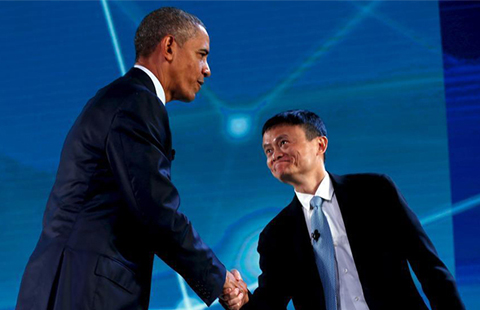
 |
|
President Xi Jinping addresses the Asia-Pacific Economic Cooperation CEO Summit, saying that China will step up reforms of the foreign investors management system and "substantially cut back" on market access restrictions for foreign investment. [Photo by Li Xueren/Xinhua] |
Beijing will "substantially cut back" on market access restrictions for foreign investment and build an economy with an even higher level of openness, President Xi Jinping told a regional business gathering on Wednesday amid global concerns over the country's slowing growth.
Addressing the Asia-Pacific Economic Cooperation CEO Summit, the president also sought to reassure regional economic and political leaders that the world's No. 2 economy is capable of fending off downward pressures.
The fundamentals of China's economy remain positive, the economy has great potential and is proving resilient to the pains of deepening reform, and there is ample room to maneuver, said Xi.
His remarks came as China faces increasing pressure from a slowing economy and criticism from foreign companies over obstacles to market access.
"We will step up reforms of the foreign investors management system, substantially cut back on market access restrictions for foreign investment, improve IPR protection, and foster an open, transparent, fair and highly efficient market environment," Xi said.
"Here I would like to reiterate that China's policy on welcoming foreign investment will not change, nor will its protection of the legitimate rights and interests of foreign invested companies, or its commitment to provide better services for them," the president added. "China's door to the outside world will forever stay open."
Beset by cooling foreign investment and the throes of deep economic reform that aims to shift the economy away from reliance on trade and investment, the world's second-largest economy grew by 6.9 percent year-on-year in the third quarter, posting the weakest pace since the global financial crisis of 2008-09.
Xi also hinted that various regional trade deals can cause "fragmentation," saying that the Asia-Pacific economies should accelerate the realization of the Free Trade Area of the Asia-Pacific initiative, which would include all APEC economies.
As the world's leading growth engine, the Asia-Pacific market has seen a number of regional trade arrangements, including the Trans-Pacific Partnership, a 12-nation trade agreement led by the United States.
Stressing that countries must make free trade arrangements open and inclusive, Xi said such agreements need equal participation and extensive consultation.
Zhang Jianping, director of the International Economic Cooperation Institute at the National Development and Reform Commission, said China, by pledging to cut restrictions on market access, is expected to nationally promote the negative list mode.








